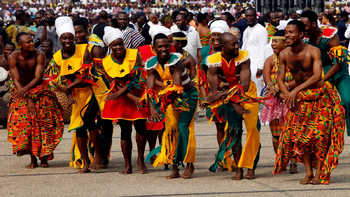
Ghana, nestled in the vibrant tapestry of West Africa, boasts a rich history and abundant natural resources. Since its independence on March 6th, 1957, under British colonial rule, the nation has emerged as a beacon of sovereignty and cultural pride. However, amidst its storied past, Ghana has grappled with preserving its heritage, relying predominantly on oral tradition for the transmission of familial and historical narratives.
For centuries, Ghanaian families have entrusted their legacies to the spoken word, passing down tales of triumphs, struggles, and ancestral wisdom from one generation to the next. This oral tradition, while deeply ingrained in the fabric of Ghanaian society, posed significant challenges for historical preservation. Unlike countries with robust archival systems like the United States and various European nations, Ghana lacked formalized mechanisms for record-keeping.

Enter FamilySearch, a nonprofit organization dedicated to genealogical research and historical preservation. In 2004, FamilySearch embarked on a transformative mission to digitize and preserve the oral genealogy of African countries, including Ghana. Their vision was clear: to empower African communities by making their rich heritage accessible online, transcending the limitations of oral tradition, and safeguarding historical narratives for posterity.
At the heart of FamilySearch's initiative lies a profound understanding of the importance of preserving cultural heritage. In Ghana, where oral history serves as the primary conduit for ancestral knowledge, the transition to digital archives represents a pivotal moment in reclaiming and celebrating the nation's diverse tapestry of stories.
Through collaborative efforts with local communities, FamilySearch embarked on a journey to capture and digitize oral histories, empowering Ghanaians to document their family roots and share their narratives with the world. This innovative approach not only preserves Ghana's heritage but also fosters a sense of belonging and pride among its citizens.
The impact of FamilySearch's initiative extends far beyond the realm of historical preservation. By digitizing oral genealogy, Ghanaian families gain unprecedented access to their lineage, fostering connections across generations and bridging the gap between past and present. Moreover, by making these records available online, FamilySearch facilitates global collaboration, enabling researchers, historians, and descendants to explore Ghana's rich cultural tapestry from anywhere in the world.
In essence, FamilySearch's commitment to preserving Ghana's heritage transcends mere digitization—it is a testament to the power of community-driven initiatives in preserving cultural identity and fostering intergenerational connections. As Ghana continues to embrace the digital age, initiatives like FamilySearch serve as beacons of hope, ensuring that the nation's rich heritage endures for generations to come.
Ghana's journey towards preserving its heritage is a testament to the resilience of its people and the transformative potential of collaborative efforts. Through the pioneering work of organizations like FamilySearch, Ghana stands poised to reclaim its narrative and celebrate its cultural legacy on the global stage. As we look towards the future, let us not forget the importance of preserving our past, for it is through understanding our roots that we truly appreciate the beauty and diversity of our shared human experience.